Student Bio
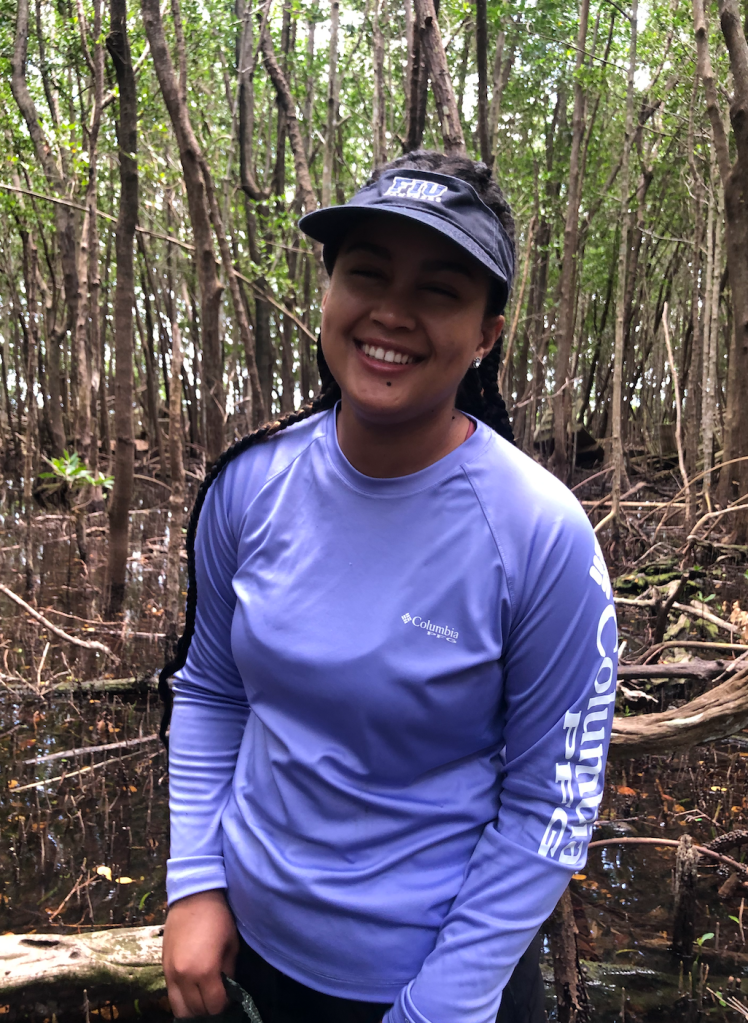
Joheily Rodriguez is a third-year student working towards a B.S. in Biological Sciences with a minor in chemistry at Florida International University (FIU) and is part of their Honors College. Passionate about medicine and the Environment, she is looking to pursue a role in medicine as a physician. She enjoys painting, playing music, and hanging out with friends in her free time.
WHO


I had the opportunity to volunteer at two environmental sites. The Bills Baggs Cape Florida State Park is an area that conserves a variety of restored ecosystems. The state park houses one of the top 10 beaches in the United States and offers a variety of activities for all sizes and ages, where you can enjoy swimming, bird watching, Biking, and more. During this opportunity, I worked on improving the park aesthetically, where we spread mulch along the entrance to the light-house.
The second Location I volunteered was with the Deering estate located on Biscayne Bay in Miami, Florida. The Deering Estate is a recognized museum in Miami, miles off the coast, that preserves Miami’s native fauna and flora and is home to eight different native ecosystems. I specifically participated in a clean-up of the Historic Mangrove Trail found at the Deering Estate, which had been destroyed by Hurricane Irma. According to the Deering Estate, the Coastal Trail pre-dates Charles Deering around 1918. Mr. Deering stabilized the Trail with material dredged from his boat basin and channel. Professor John Bailly and his teaching assistant Claudia Martinez organized the Trail’s clean-up and park improvement.
The Deering Estate and The Bills Baggs Cape Florida work extremely hard to preserve and educate the people of Miami, Florida. Both areas preserve the native ecosystems of Florida. However, this conservation and preservation are even more crucial now due to overpopulation and overdevelopment in Miami, which led to the endangering and destruction of these ecosystems.
WHY
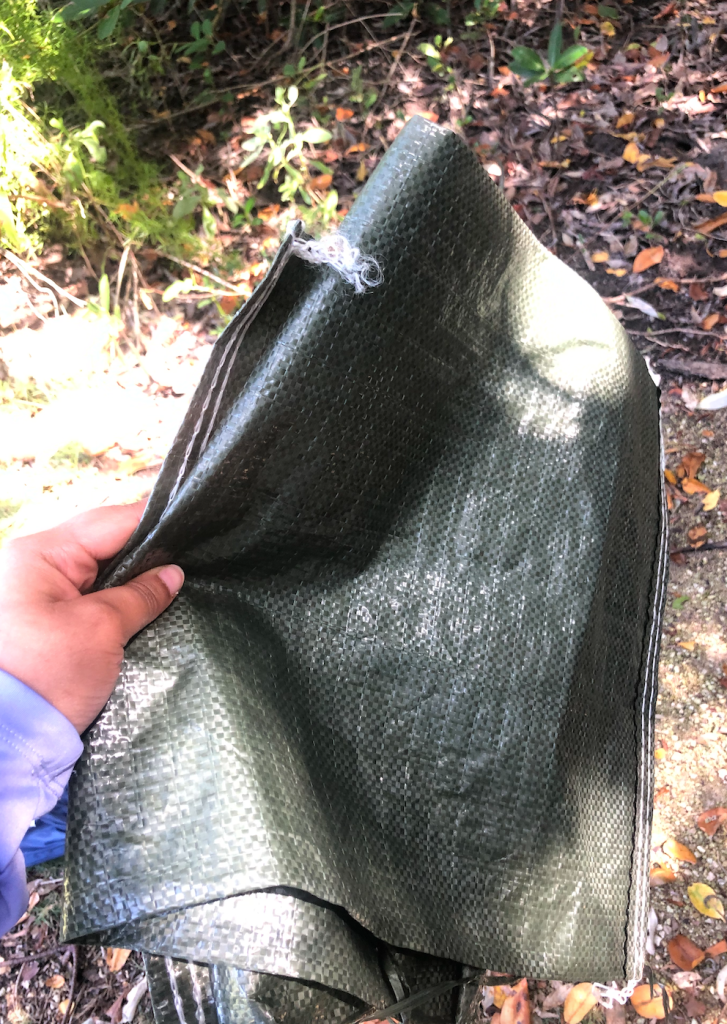
I was part of this opportunity through the Honors College in my class Miami in Miami. This class focuses on teaching its students the history of Miami through excursions and experiences, showcasing the highlights and the unfortunate events that had to take place to bring Miami where it is today. This class takes students in an immersive experience a step further than the classroom allowing its students to see Miami as more than just a busy luxurious city.
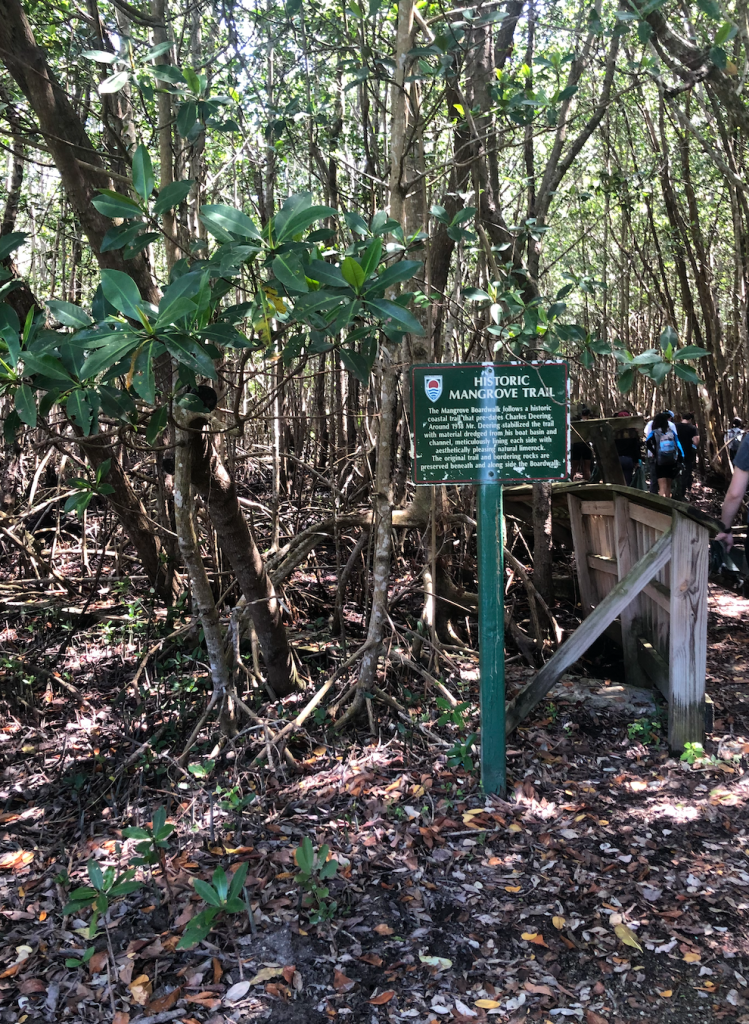
This relates directly to my major as a student pursuing a major in Biology and chemistry. Even though I am following the medicine route of science, I am very interested in sustainability and helping the environment. The health of an individual and their environment is very dependent on one another. If one lives in a healthy area with clean air and water, that individual is less likely to suffer from illness. Other factors play a role in whether an individual gets sick, but the basics are essential. Having clean air and water is vital for human health and necessary for other fauna and flora to coexist. The food we consume and the quality are dependent on the environment. If the rate is lower, humans are more predisposed to getting sick; that’s why it is crucial for sustainable practices and to learn how to keep the environment clean and safe from development.

While cleaning up around the mangrove trail, I was sad to see all the plastic in the mangrove forest. Plastic is hazardous for marine life as marine life can confuse it for food and asphyxiate, the most dangerous of all microplastic. It was an experience, and it brought me great joy to make a small positive change in the world.
HOW

I connected with this opportunity through the Miami in Miami course. Because the reality of a pandemic is still present, Professor John Bailly provided the class with these two fantastic opportunities. We were able to positively impact the community in two different locations that are very much appreciated by the public. While at the Deering Estate, we were able to go to a restricted area to pick up debris in the mangrove trail, while at the Bill Baggs park, we were able to improve the park by spreading mulch around the palm trees.
WHERE & WHAT
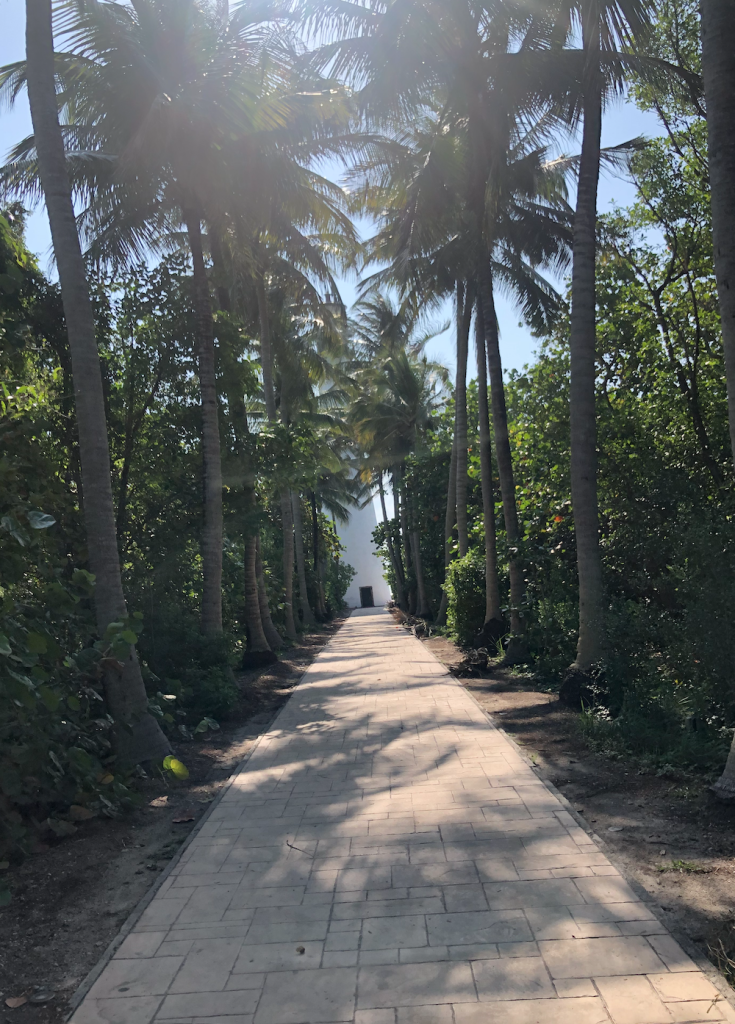
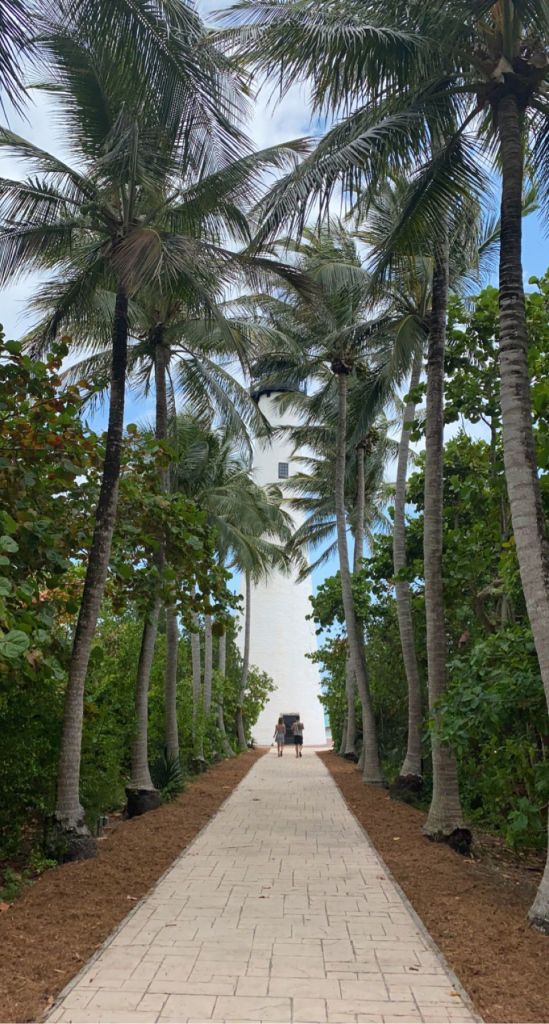
On April 6th at 10:00 AM, we met at the front gate of the Bill Baggs park lighthouse. We started picking up the mulch to the entrance area with the park ranger. The ranger explained that we would spread mulch all around the entrance leading to the lighthouse. In the beginning, I was wondering how this could help the park, but I realized making the park aesthetically pleasing would encourage more people to come to the park. This will then bring more awareness and more money to the park, which they can use to preserve and conserve the areas they oversee.
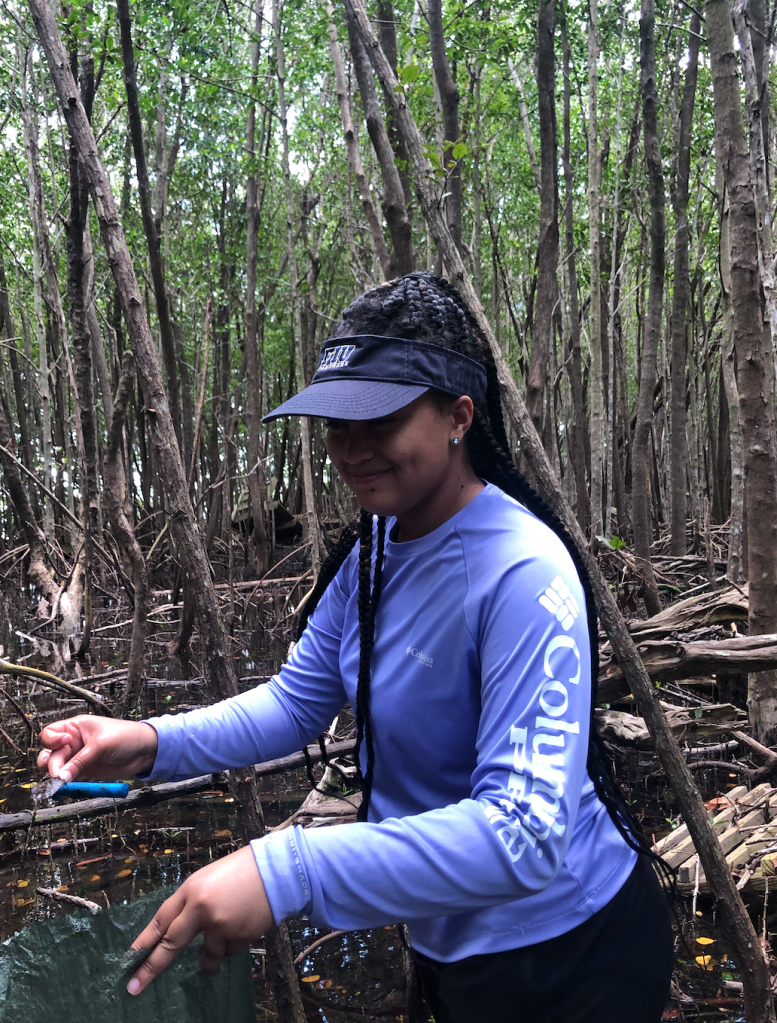
We met at the Deering Estate entrance at 10:00 AM on April 20th. Once we got there, professor John Bailey informed us that the winds were too high for us to go out to chicken key, so instead, we did a clean-up of the mangrove trail. Before going in, we all took a moment to reflect since it was the last time we were meeting. Shortly after, we walked to the Historic Mangrove trail, which was in awful condition due to Hurricane Irma. Professor Bailey warned us of the unstable structure and the loose screws around it. I was a little concerned about going into it because of the bridge and all the spiders. It helped me to stick to a group and together maneuver our way through the spider webs without disturbing them. I chose to focus on the microplastic while I was doing the cleaning. Microplastic is very important to remove, even more than the big pieces of plastic, because young marine life can confuse it for food and die. After two hours, we took a break and ate, and I enjoyed eating with students that I felt I did not know well in the class.
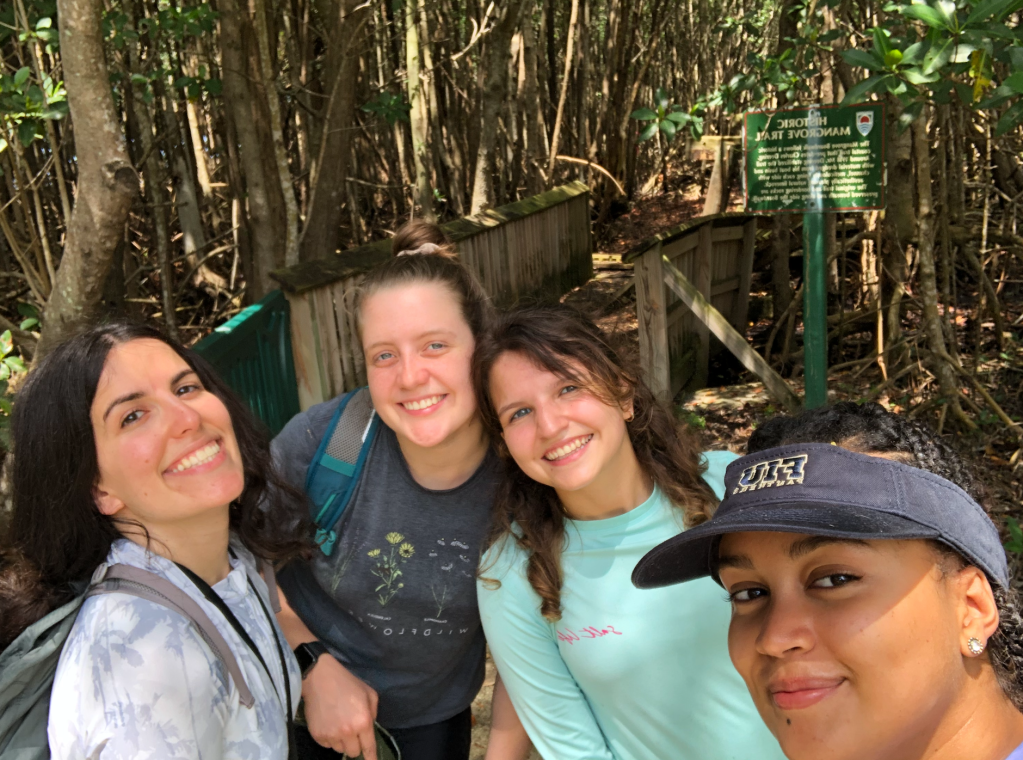
After the small break, we went back into the Mangrove forest to do more cleaning. We went deeper into the woods this time since we figured our other classmates had gotten what was closer to the entrance. We found many exciting things, from a cooking pot to an illegal Lobster Trap. Maneuvering back to the entrance proved tricky because we did not notice how far we went into it. It proved to be a great experience and reward once we got back.
WHEN
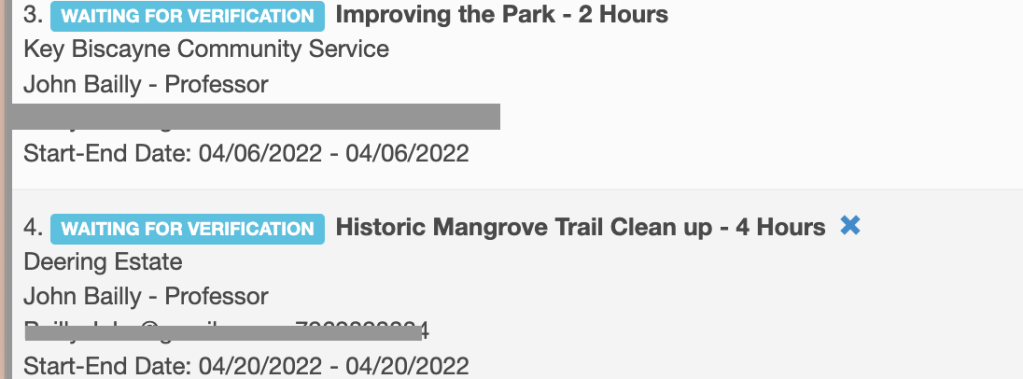
SUMMARY


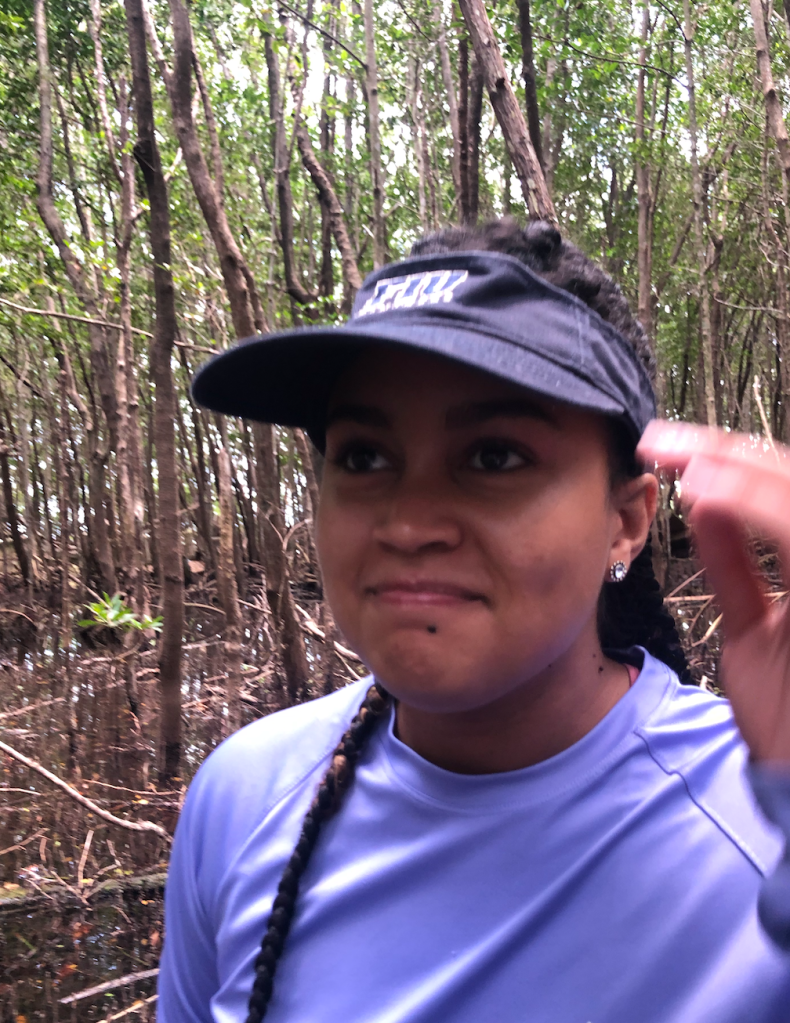
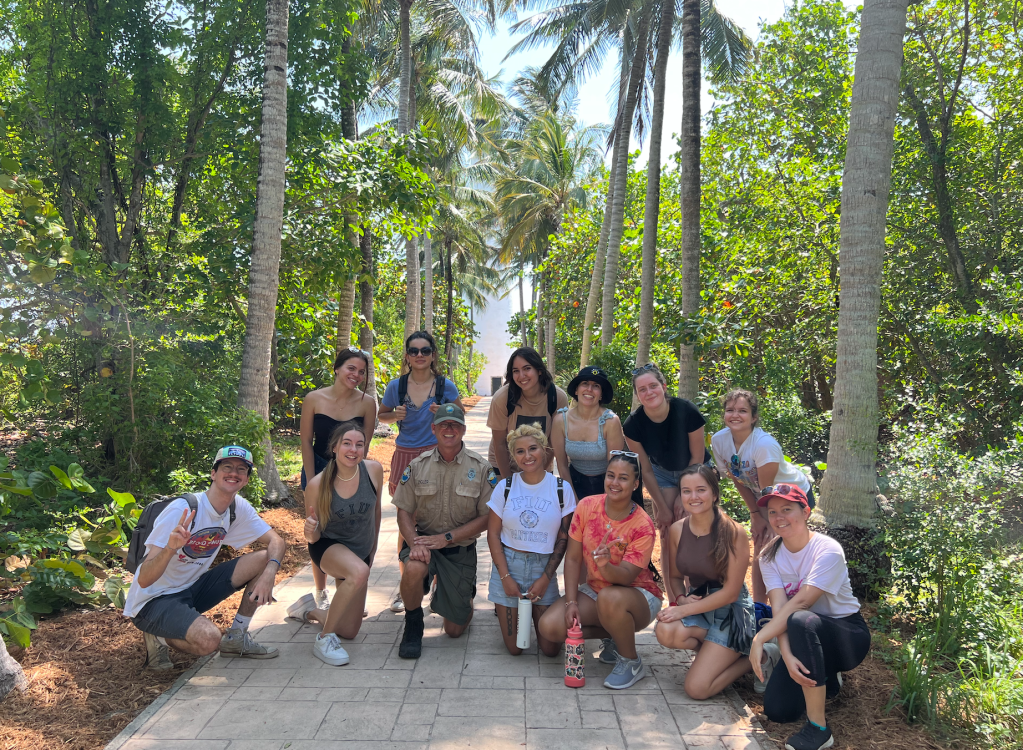
This experience was exciting, and it helped me feel more like one with nature. Some moments were more difficult than others. It was tough not to be discouraged by the spiders, crickets, and crabs I encountered. Slowly, I realized that they are part of this ecosystem and needed in many different ways. For example, the spiders around were responsible for fewer mosquitoes, which helped us navigate the mangrove.
It also proved to be challenging to walk through certain areas of the mangroves. Some of the holes we stepped on were a knee-deep, which was very intimidating to me; what helped me get out of that fear was grouping up with other students so that if I got stuck, I would be able to ask for assistance.
We struggled a lot to get in and out of the Trail. Something that worked was teamwork; for example, liza was perfect for navigation, while Leticia used her stick to move the spiders. These different jobs helped us navigate and pick up debris while still feeling safe. It was uplifting to be around people that were willing to help.
Overall, I think this experience was rewarding in itself. There were spiders, and there were snakes. But in the midst of that, there was a team effort and connections, but most importantly, we made our mark to make the world a better place, not only for ourselves as humans but for the animals we share this space with.
CITATIONS
Bailly, John. “Miami in Miami Destinations.” Miami in Miami, 26 Aug. 2021, https://miamiinmiami.com/miami/destinations/.
“Campfires Archives.” Deering Estate, 1 Nov. 2021, https://deeringestate.org/tag/campfires/.
“History.” Florida State Parks, https://www.floridastateparks.org/parks-and-trails/bill-baggs-cape-florida-state-park/history.
“Conservation.” Deering Estate, 2 Nov. 2021, https://deeringestate.org/conservation/.